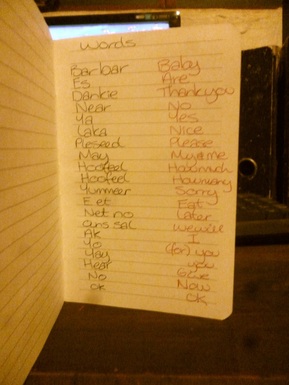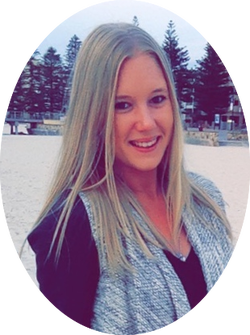
No matter where in the world I go I always make it a priority to learn the the basic phrases of a new language. I do this not only to communicate more effectively while travelling but also as a sign of respect to those I am communicating with.
I have currently been living in Botswana, Africa for the last 4 months and have made it my personal mission to be fluent in Afrikaans in the next 3 months.
Read below to find out how I aim to achieve this!
LEARN THE ALPHABET
Every language has different sounds when pronouncing letters. For example Afrikaans requires a lot of tongue movements to roll letters. The key to speaking a new language fluently to the point that you are clearly understood is to get the main words down pat. Once you achieve this you can then begin to expand with words.
GOOGLE TRANSLATE
Google Translate is perhaps one of the best tools available for self teaching a new language. Save costs on overpriced language classes and books by using the free online program. The great feature of Google Translate is it not only does it translate most words you are wanting to learn, it plays them out loud for your reference to learn how to correctly pronounce them.
PRACTISE OUT LOUD DAILY
Whether it is when you are in the shower or driving, practicing out loud is essential to mastering a new language. The more familiar you are with speaking a new language the higher your confidence will be communicating with others. You didn’t go through all of your hard work not to use your new skills!
INCORPORATE IT INTO YOUR DAILY LANGUAGE
The key to maintaing the knowledge of the new words or phrases I've have learnt for me is to replace existing words in my vocabulary with my new language. For example; ‘Look at that ‘tree’ now becomes 'Look at that boom' in Afrikaans. That way I get used to the new words I've learn and begin to incorporate them into my daily routine. This makes for an easier transition and increases practise opportunities!
PRACTISE ON PEOPLE WHO SPEAK THE LANGUAGE FLUENTLY
Everyone struggles when learning a new language so don’t be scared to test out your new skills on locals. They will most likely respect you more for attempting to communicate with them in their primary language. It is also a great way to learn by hearing foreigns communicate regularly in their native language so you can get to know the sounds correctly.
WRITE IT DOWN HOW IT IS PRONOUNCED
For me this has been my biggest key to success. Everyone is different though with a kinaesthetic learning style reading and the act of doing are essential for me. For example if I am learning how to say ‘How are you’ in Afrikaans I would write it how it sounds; hoot harn debt. This makes it easier to practise new phrases I have learnt and allows me to refer back to my own guide book when practising alone. It may make for writing the language more difficult later on down the track. For the mean time it is a great way to become fluent in a new language quickly and efficiently!
If you have any tips on what works for you when learning a new language I would love to hear from you!
I have currently been living in Botswana, Africa for the last 4 months and have made it my personal mission to be fluent in Afrikaans in the next 3 months.
Read below to find out how I aim to achieve this!
LEARN THE ALPHABET
Every language has different sounds when pronouncing letters. For example Afrikaans requires a lot of tongue movements to roll letters. The key to speaking a new language fluently to the point that you are clearly understood is to get the main words down pat. Once you achieve this you can then begin to expand with words.
GOOGLE TRANSLATE
Google Translate is perhaps one of the best tools available for self teaching a new language. Save costs on overpriced language classes and books by using the free online program. The great feature of Google Translate is it not only does it translate most words you are wanting to learn, it plays them out loud for your reference to learn how to correctly pronounce them.
PRACTISE OUT LOUD DAILY
Whether it is when you are in the shower or driving, practicing out loud is essential to mastering a new language. The more familiar you are with speaking a new language the higher your confidence will be communicating with others. You didn’t go through all of your hard work not to use your new skills!
INCORPORATE IT INTO YOUR DAILY LANGUAGE
The key to maintaing the knowledge of the new words or phrases I've have learnt for me is to replace existing words in my vocabulary with my new language. For example; ‘Look at that ‘tree’ now becomes 'Look at that boom' in Afrikaans. That way I get used to the new words I've learn and begin to incorporate them into my daily routine. This makes for an easier transition and increases practise opportunities!
PRACTISE ON PEOPLE WHO SPEAK THE LANGUAGE FLUENTLY
Everyone struggles when learning a new language so don’t be scared to test out your new skills on locals. They will most likely respect you more for attempting to communicate with them in their primary language. It is also a great way to learn by hearing foreigns communicate regularly in their native language so you can get to know the sounds correctly.
WRITE IT DOWN HOW IT IS PRONOUNCED
For me this has been my biggest key to success. Everyone is different though with a kinaesthetic learning style reading and the act of doing are essential for me. For example if I am learning how to say ‘How are you’ in Afrikaans I would write it how it sounds; hoot harn debt. This makes it easier to practise new phrases I have learnt and allows me to refer back to my own guide book when practising alone. It may make for writing the language more difficult later on down the track. For the mean time it is a great way to become fluent in a new language quickly and efficiently!
If you have any tips on what works for you when learning a new language I would love to hear from you!


 RSS Feed
RSS Feed
